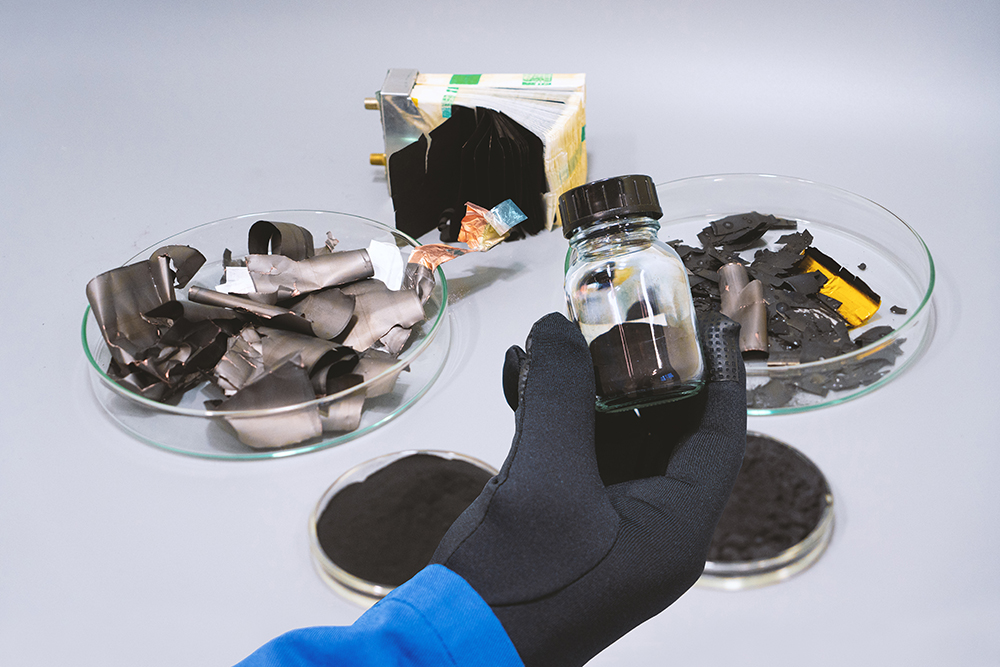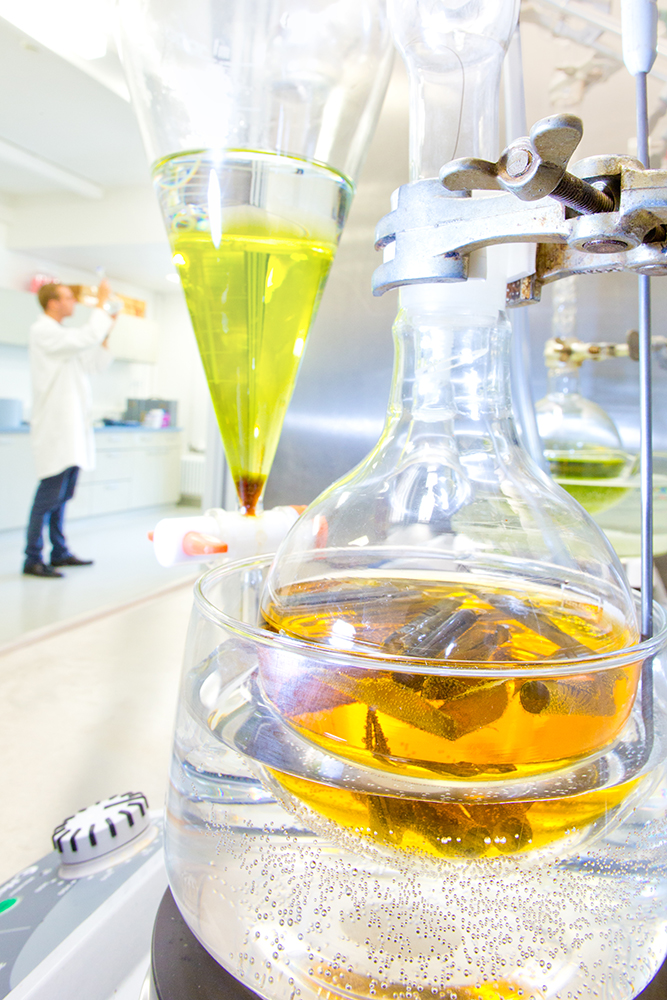Green battery technology: Fraunhofer IKTS opens new site in Freiberg
Powerful battery storage systems are an essential component for the success of the energy transition. But how can these be produced in an environmentally friendly and sustainable way in the future? How can digital processes provide support? And how can old batteries be efficiently recycled and returned to a circular economy? Fraunhofer IKTS is addressing these questions at its new institute site in Freiberg, which was established with the support of Saxony's State Ministry for Science, Culture and Tourism.


Efficient recycling processes for a recirculation of critical raw materials
Shortage of raw materials, environmental pollution and inhumane working conditions in the extraction of raw materials will increase the demand for recycled battery raw materials in the future. At its new site in Freiberg, Fraunhofer IKTS is therefore testing efficient recycling processes with which the yield and purity of recovered battery materials such as lithium, nickel or cobalt can be further increased. The researchers are thus moving closer to the goal of an economic recycling of battery components. The emphasis is on hydrometallurgical and electrochemical processing of metallic battery materials. Furthermore, the researchers aim to recover strategic raw materials from digestion media and process water from the recycling process using innovative separation techniques. This is accompanied by investigations into the conditions under which these so-called secondary raw materials can be used for resynthesis – i.e., the production of new starting materials for battery manufacture – and the influence they have on the performance of the battery cells.
Digitalized battery manufacture for resource conservation – from raw material to recycling
For resource-saving battery cell production, production defects must be avoided, reject rates significantly reduced and recycling processes optimized. At the new IKTS site, numerous pilot plants are available on more than 400 square meters of technical space, on which inline testing methods are being evaluated. For this purpose, the researchers adapt non-destructive testing methods developed by Fraunhofer IKTS and integrate them into the individual production steps. In this way, for example, the properties of raw materials during battery mass production can be controlled or the deep discharge of batteries during recycling is monitored. Intelligent database solutions are set up for the data volumes obtained in this process. This makes it possible to reliably detect defect patterns and optimize raw material and production flows.
Solid state batteries with an increased service life and without critical raw materials
Next-generation batteries aim not only to improve energy density but also to replace critical raw materials such as cobalt and increase service life. Fraunhofer IKTS is intensifying its research on novel battery concepts in Freiberg. One focus is on solid-state batteries, in which the liquid electrolyte is replaced by more environmentally friendly and reliable solid electrolytes based on polymers or ceramics. A drying room with excellent quality is available to the researchers for the production of solid electrolyte cells and components.
Activities in Freiberg a key step in the expansion of battery research in Saxony
“SaxBatt”, one of the initial projects of the new site in Freiberg, was launched in early January. The Saxon State Ministry for Science, Culture and Tourism is supporting the project with an ERDF funding of five million euros for investments and equipment. "Saxony is already very strong in energy research and would like to expand these activities more in the future. The activity of IKTS in Freiberg is an important building block for this and at the same time an excellent example for the cooperation of science in the field of resource technologies", emphasizes Minister of State Sebastian Gemkow.
In addition, Fraunhofer IKTS has already succeeded in acquiring more than seven million euros in project funding within the framework of the competence clusters "green-Batt", "ProZell", "AQuaA" and "InZePro" – all funded by the German Federal Ministry for Education and Research. Currently, six researchers are working at the new IKTS location. The number of employees is expected to increase gradually over the next few months. "We are pleased to be able to contribute to reshaping the energy industry in the coming years. This concerns not only the increased use of renewable energies, but also the sustainable design of the technologies used for this purpose within the framework of a future circular economy," explains Prof. Alexander Michaelis, Institute Director at Fraunhofer IKTS.
At the Freiberg site, Fraunhofer IKTS not only has an outstanding infrastructure, but also excellent research institutions for cooperation. Fraunhofer IISB is a partner in the Fraunhofer Technology Center High Performance Materials THM. Furthermore, IKTS cooperates with the resource university TU Bergakademie Freiberg and the Helmholtz Institute Freiberg for Resource Technology (HIF) within the competence cluster "greenBatt". Fraunhofer IKTS is thus well positioned to address the promising topic of circular economy and to transfer it to other recycling routes beyond battery production.